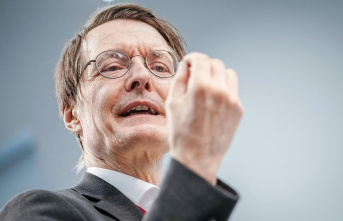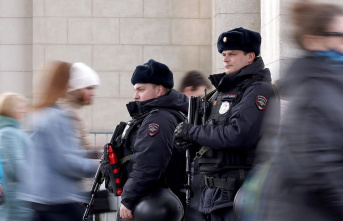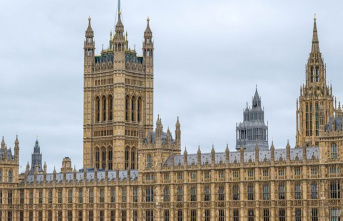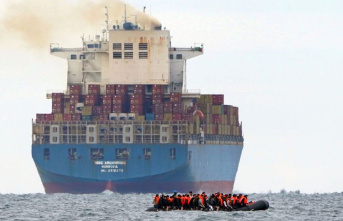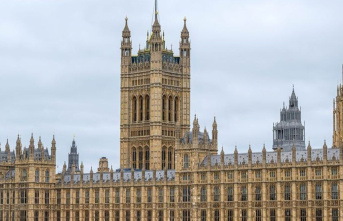China's backing for Russia after invading Ukraine has cracked. The leadership in Beijing is in a dilemma: both countries are united by their opposition to the United States - but the longer the conflict lasts, the quieter support for Moscow becomes. Critical voices are getting louder.
"Russia's behavior at the start and conduct of the war proves that its military adventure is ruthless and its conventional armed forces are weak," says international relations professor Shi Yinhong from the People's University in Beijing, the German Press Agency.
What isn't said is often important in China, too. At a press conference at the Congress of the Communist Party, leading foreign politicians didn't say a word about the actually "boundless friendship" with Russia. It is also customary for a Russian journalist to initially be allowed to ask the second or third question about the partnership with Moscow. Not this time.
At a meeting with head of state and party leader Xi Jinping in October, Russian President Vladimir Putin acknowledged "concerns and questions" on the Chinese side - knowing that he was asking a lot of Beijing. With the setbacks of the Russian forces on the battlefield, China's position "quickly developed to a new stage," believes Professor Shi Yinhong. The annexation of the occupied territories in Ukraine after the sham referendums apparently caused support to dwindle further.
Chancellor Scholz visits Beijing
When Olaf Scholz is expected to make his first visit as chancellor to Beijing on November 4, the war in Ukraine will play an important role. But also China's brash foreign policy, which is increasingly encountering opposition with its propagated "fighting spirit". The first meeting between Foreign Minister Angela Baerbock and her Chinese colleague Wang Yi in September at the UN General Assembly in New York "didn't go well", according to informed circles, pointing out the differences.
The Federal Foreign Office is now working on a new China strategy. After the experiences with Russia, Baerbock emphasizes that Germany should no longer make itself dependent on any country "that does not share our values". Such mistakes should not be made twice. Economic dependency makes Germany "politically blackmailable," she told the "Süddeutsche Zeitung" about dealing with China. "It's not about complete decoupling, which is not possible with one of the largest countries. But opening up alternative markets in Asia, diversification and risk management."
German intelligence services are also warning of China. The President of the Federal Office for the Protection of the Constitution, Thomas Haldenwang, warned on Monday before the Parliamentary Control Committee that in the long run, the far more serious threat to German security and interests emanated from China: "Russia is the storm, China is climate change." Foreign Ministry spokesman Wang Wenbin countered in Beijing: "Stop exaggerating the so-called espionage threat from China and stop spreading rumors that blacken China."
So not an easy journey for Scholz. He will be the first foreign leader to meet head of state and party leader Xi Jinping at the party congress after his expected re-election. The Chancellor will also be the first head of government of a G7 member to visit China since the outbreak of the corona pandemic and the start of the war in Ukraine. Scholz will have to find out where Xi Jinping really stands.
Didn't China see the war coming?
"He must have thought the war would be over soon," says expert Richard McGregor of Australia's Lowy Institute. "Now he has to recalibrate." China apparently did not see the war coming, although Xi Jinping met with Putin at the start of the Winter Olympics in Beijing, when he was already deploying the troops. "It's too early to tell if the Chinese think they've made a miscalculation. But I think they're definitely twisting and squirming."
The conflict in Ukraine has developed badly for Putin. "It certainly didn't go well from Xi Jinping's perspective either," said McGregor, who says Beijing is "extremely concerned." "A consistently weakened Russia is not good for China," believes the Lowy expert. "China doesn't mind if Russia is the junior partner in their coalition. But they don't want it to be too weak either."


